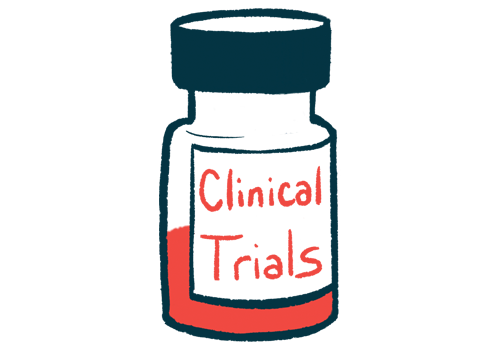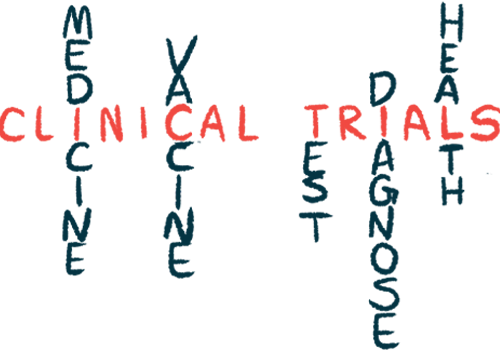The Tau Next Generation (Tau NexGen) clinical trial will now be evaluating an anti-amyloid antibody in addition to an anti-tau antibody as a potential treatment for early onset Alzheimer’s disease, according to a press release. BioArctic and Eisai‘s investigational treatment lecanemab has been selected as the background anti-amyloid agent to be used for the first arm of…
Category: Alzheimer’s
2 Blood Biomarkers May Be Used to Monitor Lecanemab’s Efficacy
The blood levels of two biomarkers of Alzheimer’s disease are significantly associated with changes in brain beta-amyloid deposits and cognitive function in early Alzheimer’s patients treated with lecanemab (BAN2401), according to a new analysis of data from a Phase 2b clinical trial. The results suggest that these blood biomarkers — p-tau181 and beta-amyloid fragments —…
Vaccine Sparking Immune Reaction Against Toxic Tau Proteins in Trial
An investigation vaccine for Alzheimer’s disease, ACI-35.030 by AC Immune, induced a potent production of antibodies against toxic forms of tau protein — a Alzheimer’s hallmark — in patients with early stage disease, interim results of an ongoing Phase 1b/2a trial show. “These promising results … will be invaluable as we work to further ACI-35.030’s clinical development…
Auction Photo Shows How Alzheimer’s Can Unravel Patient’s Crocheting
At first glance, it’s a simple photo of eight small crochet works posted in three rows on a light-color backdrop and contained in a wooden frame. But there’s much more to it than that. The photo is a visual representation of the progressive effect of Alzheimer’s as put together by the daughter of the artist,…
EMA Committee Votes Against Approving Aduhelm in Europe
A European Medicines Agency (EMA) committee has voted against approving Biogen’s Aduhelm (aducanumab) as a treatment for Alzheimer’s disease. The EMA’s Committee for Medicinal Products for Human Use, known as CHMP, is expected to issue a formal ruling based on this so-called negative trend vote after its meeting in mid-December. But the regulatory agency usually follows…
Lower Levels of Tau Marker Seen With Aduhelm in Phase 3 Trials
Treatment with Aduhelm (aducanumab) showed a significant correlation with lower blood levels of p-tau181, a disease biomarker, and lesser cognitive and functional decline in Alzheimer’s patients, according to a recent data analysis of two Phase 3 clinical trials. The data, analyzed from around 7,000 blood samples collected from more than 1,800 patients who participated in the EMERGE…
AC Immune Extends Work Into TDP-43 Protein’s Role in Alzheimer’s
AC Immune has announced it will extend its partnership with researchers at the University of Pennsylvania to further study the mechanisms underlying disease-causing changes in the transactive response DNA binding protein 43 kDa (TDP-43). Specifically, company researchers and those with the university’s Center for Neurodegenerative Disease Research at the Perelman School of Medicine are looking into what causes TDP-43…
Massachusetts Center Will Use AI to Help Improve In-home Care
The MassAITC project was recently launched to focus on using artificial intelligence (AI) to improve in-home care for older adults and others with Alzheimer’s disease, with the help of a five-year, $20-million grant from the National Institute on Aging, a part of the National Institutes of Health. MassAITC, which stands for Massachusetts AI and Technology…
Trial Testing ALZ-101 Alzheimer’s Vaccine Recruits First Patient
The first patient has been recruited, in Finland, for Alzinova AB’s Phase 1b clinical trial testing its ALZ-101 vaccine for Alzheimer’s disease, the company announced. Alzinova AB, a Swedish biopharma company, is working to develop treatments for Alzheimer’s that specifically target amyloid-beta oligomers — chains of several single units (monomers) of the protein. The toxic…
Study Connects Herpes to Biological Risk for Alzheimer’s
A biological framework called the “microcompetition model” may explain why people infected with herpes simplex 1 (HSV1) are at increased risk of developing Alzheimer’s disease. “These dynamics explain the observed connection reported in many studies between the virus and Alzheimer’s disease, and provide a framework for further investigations,” researchers wrote. This idea was outlined in…











